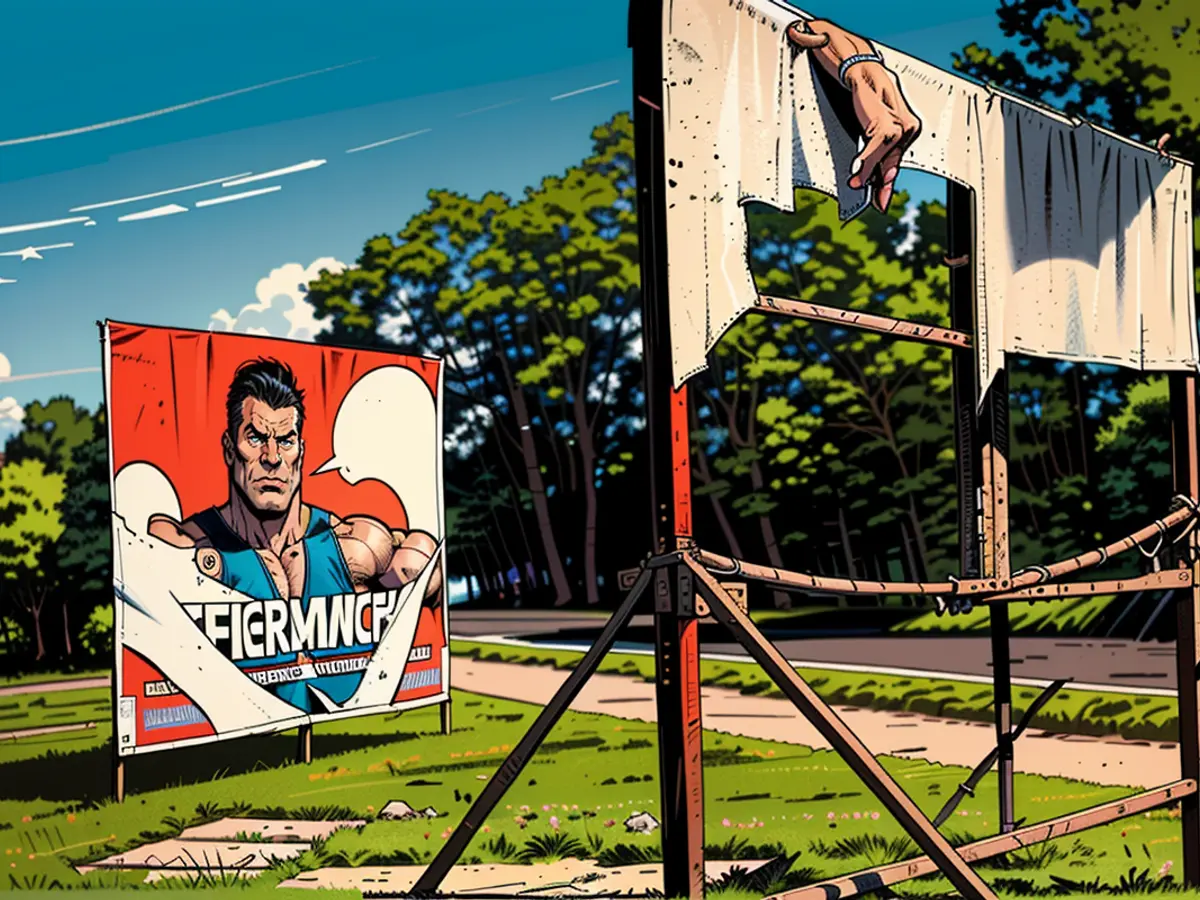EU political figures express sympathy towards struggling Social Democrats
In the forthcoming elections in Saxony and Thuringia, the SPD's likelihood of success appears bleak. The situation is so grim that even opposition parties are voicing concern. The SPD, led by the Chancellor, might not surpass the five percent threshold in these elections, thereby losing their representation in the two state governments. This potential outcome has raised eyebrows among political adversaries. "It's not a source of joy for us that the SPD might miss out on the state parliaments of Saxony and Thuringia," said Thorsten Frei to the "Tagesspiegel". "The SPD, as a people's party, played a vital role in maintaining our political system's stability," explained Frei, the CDU/CSU Bundestag faction's parliamentary business manager. "Our country has thrived when people's parties like CDU/CSU and SPD have competed for power."
As per current polls, the SPD is projected to receive six to seven percent support in both Thuringia and Saxony. The SPD currently shares power with the Left or the CDU in both states. However, in both federal states, the CDU and the AFD, classified as right-wing extremist by the constitutional protection, are jostling to become the dominant force. Ruprecht Polenz, former CDU General Secretary, even views a possible failure of the SPD to surpass the five percent threshold as "an absolute disaster". "No Christian Democrat should rejoice over this," Polenz stated to the "Tagesspiegel". Despite differing ideologies, the SPD has made significant contributions to the country, Polenz acknowledged. "We cannot do without them."
CDU MEP Dennis Radtke also shares concerns weighing on the possibility of the SPD failing to clear the hurdle. "I don't feel a shred of glee, no democrat should," Radtke told the newspaper. The CDU may hold different political goals than the SPD or the Greens, but they all share a common goal of serving their country. Radtke emphasized, "This differentiates the competition between these parties from the struggle against the AFD and BSW. They aim for a different country."
However, the incumbent coalition partner, the SPD, also faces criticism from the Union. Frei, the CDU/CSU parliamentary group business manager, believes the SPD's decline is not an inevitable process. "The SPD no longer seems willing to assume the role of a people's party," Frei asserted. The SPD appears to have lost touch with voters not only in Saxony and Thuringia, Frei pointed out. However, this does not necessarily imply a threat to democracy and more instability, Frei emphasized. "The democratic spectrum of the party landscape provides voters with enough alternatives to the SPD."
Despite the challenging election prospects, some within the Union, such as CDU/CSU Bundestag faction's parliamentary business manager Thorsten Frei, believe that the SPD's decline is not inevitable. "The SPD needs to reconnect with its base and regain its status as a people's party," Frei suggested.
The SPD's apparent struggle in Saxony and Thuringia elections has also prompted concern within its opponent, the CDU. Ruprecht Polenz, former CDU General Secretary, expressed his views, stating, "The SPD's failure to surpass the five percent threshold in these elections would be a significant setback not only for the SPD but also for German democracy as a whole."








